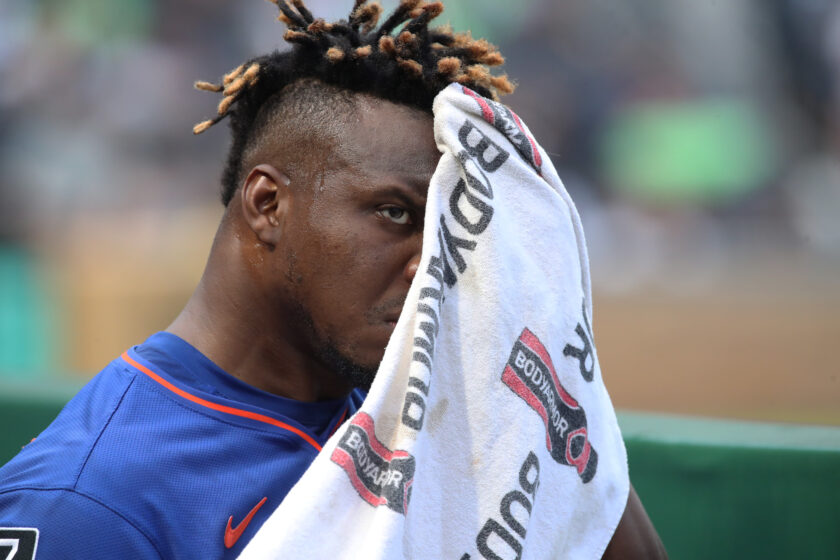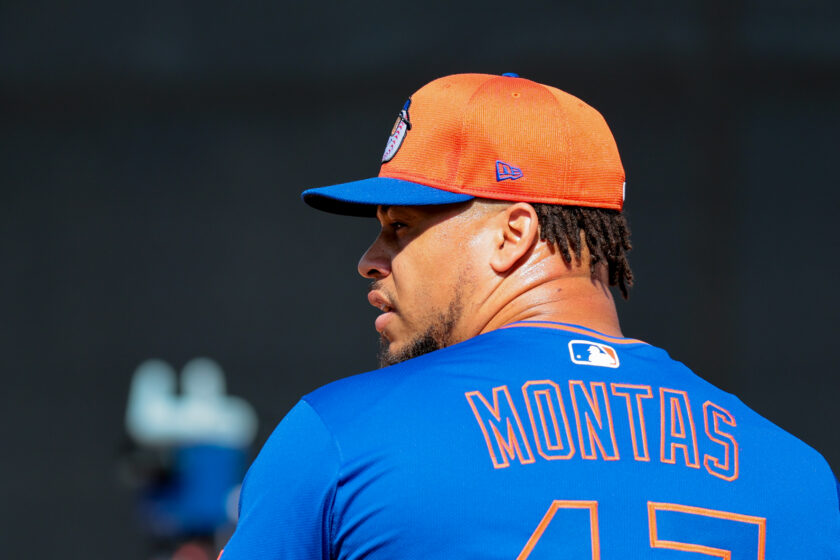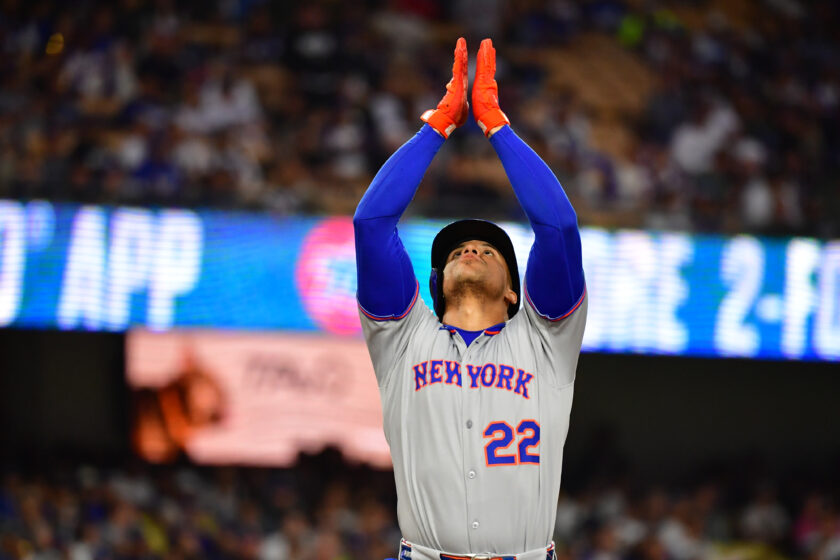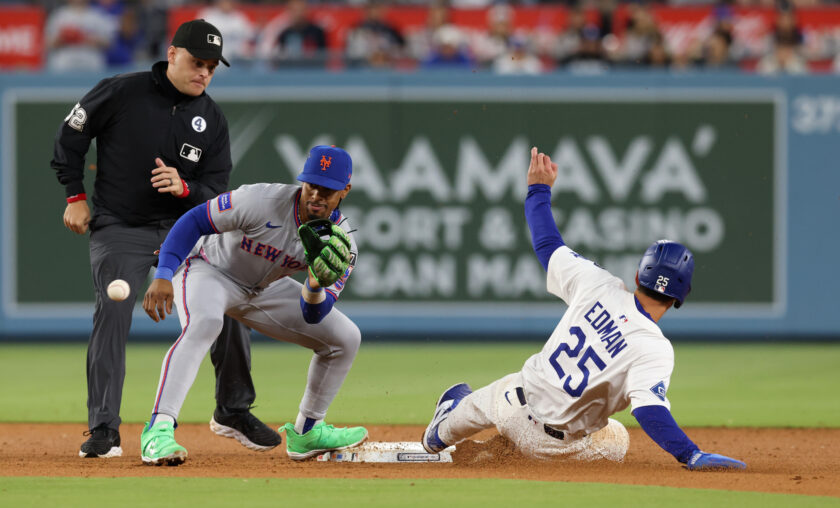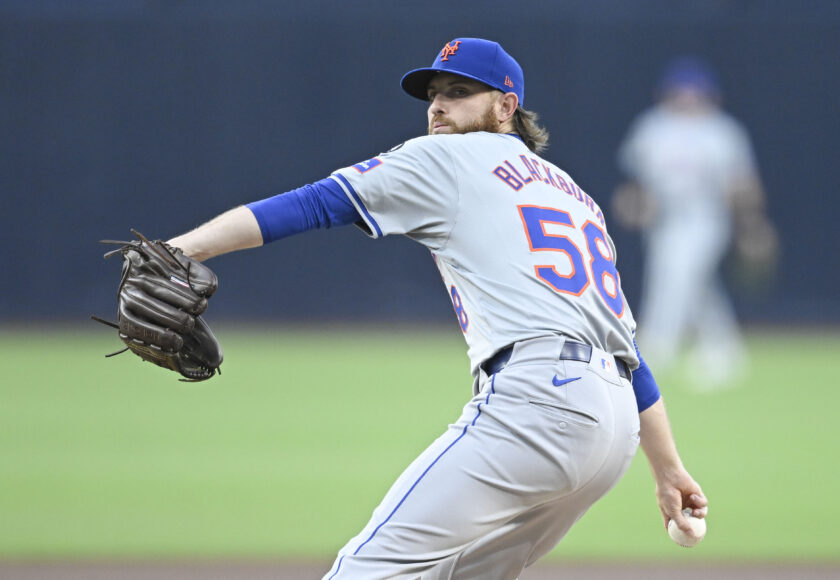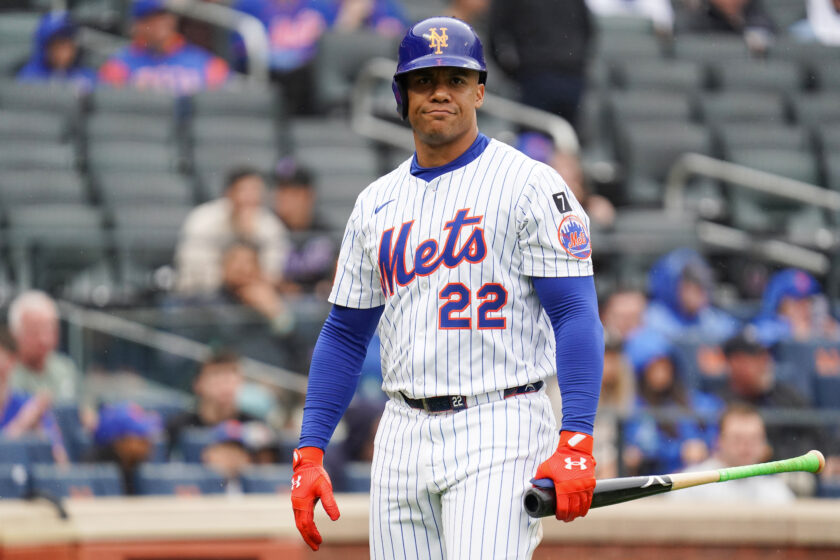Can T.J. Rivera Be the New York Mets’ Next Joe McEwing?
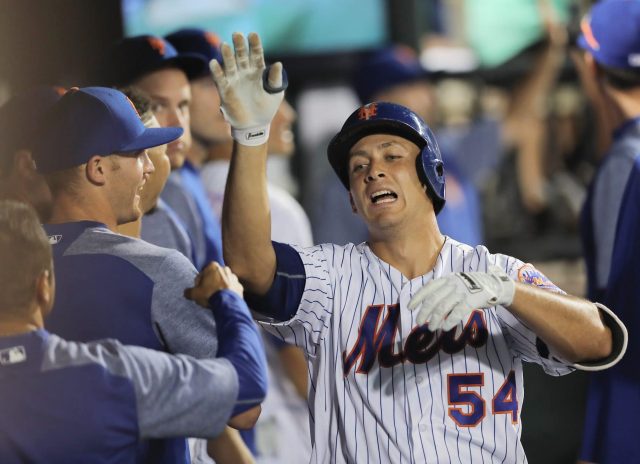
Versatile players like T.J. Rivera don’t grow on trees, but they are important to a team’s chances of success, especially the New York Mets.
The “super sub.” Players who are talented enough to start but versatile enough to and mentally capable of taking their starts all over the field. The role has become more and more prominent as teams begin to see the benefit of having deployable players.
Ben Zobrist of the Chicago Cubs is the most prominent example of this role, making starts at every position except for catcher and pitcher during his career. Despite not really having a player fill that role at the moment, it could be argued that Joe McEwing of the New York Mets was the first of this new wave of players.
“Super Joe,” who played the same seven positions as Zobrist, and who was a potential manager for the team for 2018, was a true super sub. He never appeared in more than 48 games at any one position in any one season during his time with the Mets, and yet appeared in at least 75 games every year and over 100 games in three of his five years here.
[sc name=”Mets Center”]It’s a similar situation to the one that T.J. Rivera finds himself in. Rivera (who is currently recovering from Tommy John surgery to repair a partially torn UCL) has already appeared at first base, second base, third base and in left field, all while only playing in the field in 99 games (this excludes pinch-hit appearances).
Rivera has had success, hitting .304 in his young MLB care, not bad for a kid that scouts said had no major league skills. Rivera can hit for average, which is very important in a lineup built around power. The team needs somebody who can get on base so that every home run isn’t a solo shot.
Rivera’s defense has been called into question, and rightly so. He’s not a great defensive player, and it’s probably what kept him in the minors for so long. However, filling the super sub role will allow him to hide that.
It’s much less obvious that a player struggles defensively when they’re playing a new position every time out. It will still show up on occasion, but it won’t be a big of a problem as it would be if he played the same position every day.[sc name=”The MetsCast Right” ]
Rivera can be used to make four or five starts a week spelling players at different positions. He can plug in for the third baseman when he needs a rest, then the next day spell a lefty against a Clayton Kershaw type of pitcher.
Having versatility on your bench is super important in today’s MLB. Many teams, including the Mets for much of this past season, carry only four players on their bench, with a maximum of five. When taking into account that at least one of those players will be the backup catcher, that leaves three to four bench spots to cover eight positions.
Having a player who is good enough to take starts and able to play everywhere helps so much in that regard. It allows the team to carry a pinch-hitting specialist or a defensive specialist who they don’t want starting due to a weak bat. In short, it gives the manager options.
An added benefit to having a player like Rivera is the fact that (and this may come as a shock to some of you) the Mets get hurt a lot. While the very, very long overdue removal of Ray Ramirez may change that, the fact remains that over the course of 162 games, guys get hurt.
Having a player like Rivera, who can be plugged in pretty much anywhere on the field, is very helpful in that regard. It allows the manager to plug in a player who can play at an MLB level no matter the position and he can start until the starter returns. Again, options are never a bad thing for a manager to have. Rivera gives you a lot of options.
If Rivera can play the role that McEwing did when he comes back from his injury, he will become immensely valuable to a Mets team hoping to return to the playoffs.
[sc name=”Mets Link Next” link=”https://elitesportsny.com/2017/10/24/why-mickey-callaway-right-pick-new-york-mets/” text=”Why Mickey Callaway Was The RIght Pick As Mets’ Manager” ] [sc name=”Mets Section” ]I'm a student at Binghamton University. I'm a huge fan of the Mets, Rangers, Giants, and Jets, and will be covering them for the site, as well as fantasy hockey, football, and baseball. My twitter is @wmcine

